Herbal life: traditional medicine gets a modern twist in Iran
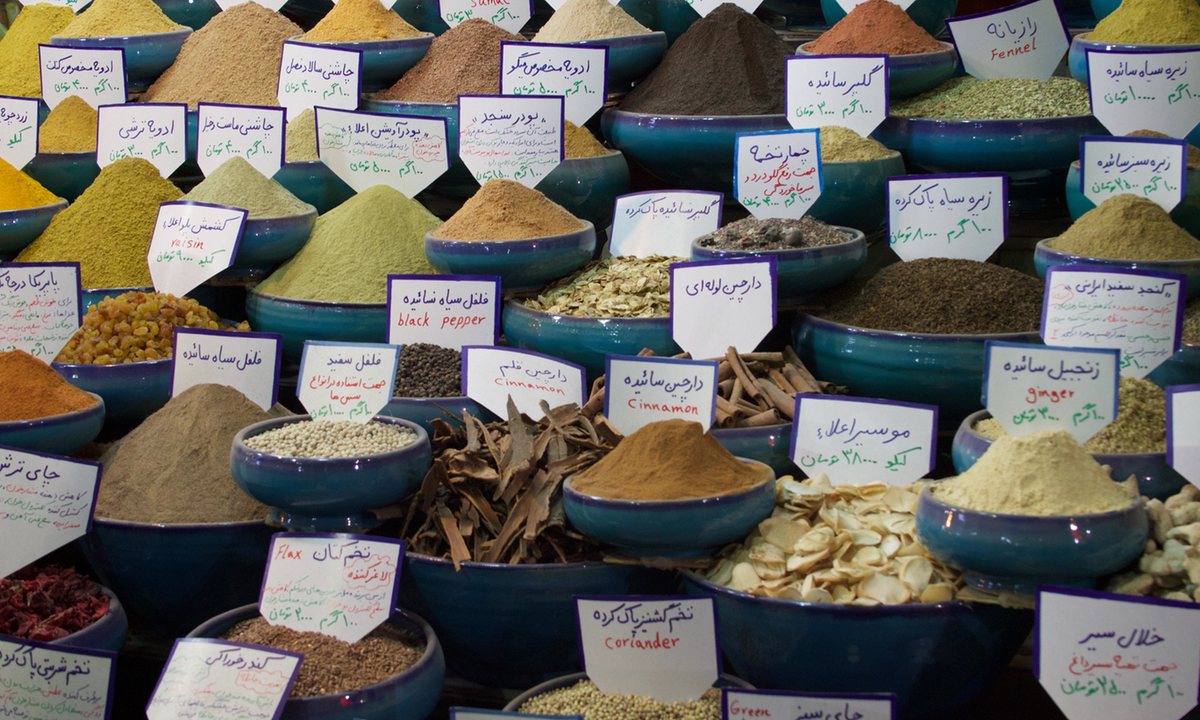
Iranians have long used traditional remedies to cure all kinds of ailments – pennyroyal to soothe, chicory to purify, marjoram to lift the spirits. But a rapid recent growth in traditional medicine has led to problems with regulation
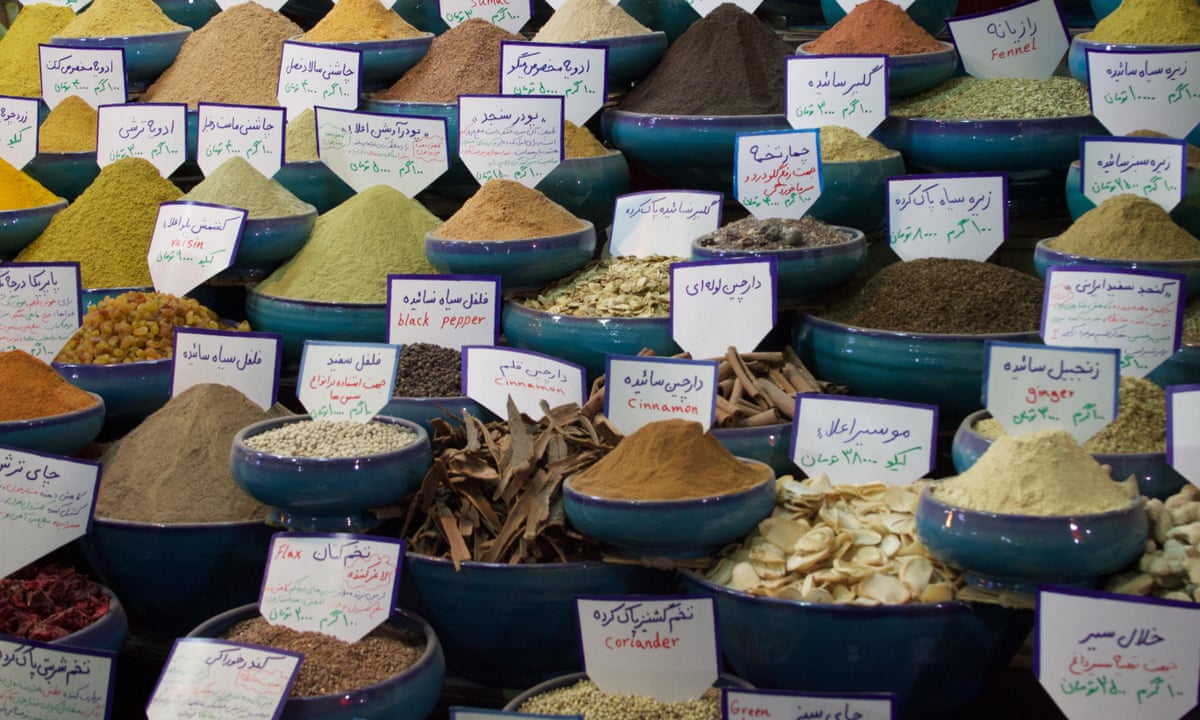
Shahla pulls her wheeled suitcase behind her over the cobblestone streets of Istanbul. Inside are herbs and herbal products she has brought from Iran for her niece. As soon as she arrives, she opens the suitcase and hands them one by one: henna, tea, turmeric, cinnamon, herbal flu tablets and shampoos. She apologises for not bringing pennyroyal.
Shahla, who is in her early 60s and lives in Tehran, is an encyclopaedia of traditional medicine. I barely use chemical medicine for flu, instead I drink brewed pennyroyal or borage, she says. Pennyroyal is a pain killer too. If you have a fracture or bruise, you can mix it with roasted flour and oil and rub it in.
And its not just flu. Shahla uses henna to strengthen her hair roots and mixes it with yogurt to make a face mask. She says it is also a remedy for foot odour as it kills fungus. She recommends mint tincture for bloating, but adds that dog-rose tincture is better for women after the menopause as mint is garmi (it raises the body temperature) and therefore unsuitable for women who get hot flashes.
She browses her memory for more advice. Chicory tincture cleanses the liver, marjoram is an anti-depressant, turmeric heals wounds. After childbirth, women should drink kachi, a soup made of turmeric powder, flour, oil, sugar and water – it heals all the internal ulcers.
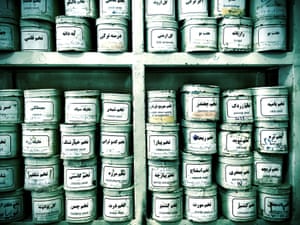
Shahla is continuing an Iranian tradition of medicine going back several thousand years. While western cultures tend to see herbs as an alternative treatment, traditional medicine retains a prominent status in modern Iran: most households reserve a shelf for herbal essences, powders and tinctures.
The health benefits of pairing warm and cold ingredients are integral to Iranian cuisine. The act of squatting in a courtyard or the kitchen floor to prepare fresh herbs is a folkloric womens pastime; eating herbs (sabzi khordan) is prescribed by both doctors and grandmothers to cure everything from joint pains to high cholesterol.
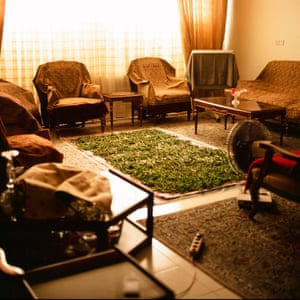
Iranians are not impervious to medical advances. Shahla injects insulin for her diabetes. But she pairs it with cinnamon infusions in a good example of traditional medicine existing alongside modern medicine.
Iran has 8,000 medicinal plants, of which 2,000 grow exclusively inside the country, according to the Research Institute of Forests and Rangelands, which is affiliated to the agriculture ministry. Top universities, including Tehran University and the University of Shahid Beheshti, have specific faculties dedicated to the traditional medicine.
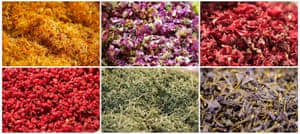
This coexistence has been undermined by a recent, sudden growth in attaris, shops selling medicinal plants, due in part to the rising cost of imported medicines after the United States financial sanctions introduced in 2012.
During that year, the use of herbal drugs increased 13%, according to the natural remedies office of the governments food and drug administration, as most herbal remedies were produced domestically. The scarcity of prescription drugs, a drop in purchasing power and a surge in unemployment created a fertile environment for amateur attaris.
These days, people are more aware of the dangers of chemical drugs and therefore are more into herbal therapy, says Ali Javadi, a traditional medicine practitioner. Over the past decade, due to sanctions, the cost of medical treatment has increased. People have turned more to herbal treatment, which is not as expensive.
By November 2015, the health ministry warned that one-third of 15,000 attaris were unlicensed. Unfortunately some people, after working in an attari for few months and reading a few books on herbal medicines, open their own attaris without taking the legal steps, says Hassan Bokharaei, head of the Mashhad branch of the Union of Medicinal Plants, the body responsible for licensing attaris. We have people who were taxi drivers or had shoe shops, but because they couldnt make ends meet, they have opened their own attaris.
Hamed, 25, recently took over an attari in Mashhad from his father, who had been in business for 20 years. He is concerned over the state of the trade. Now we have two kinds of attaris, he says. Those who work professionally, and those who sell drugs including methadone, tramadol, abortion drugs and others. The second kind spring up like mushrooms and are destroying this profession.
To get a licence, proprietors need a high-school diploma. Then, they must approach their local union of medicinal plants and enrol in a year-long programme to learn about herbs, sales and health advice. The course is followed by an exam administered by the agriculture organisation, a government body.
Maryam, who has a degree in agricultural engineering, opened her attari in Mashhad almost a year ago. The start-up cost is $5000-6000, she says, but with the job market is down and people losing their jobs, you can earn relatively well.
On a routine walk through a market in Mashhad, its possible to find an attari every 500 metres. One store is full of handwritten notes informing customers that remedies for depression, obesity, high blood pressure, frigidity, multiple sclerosis and other ailments are in stock. Customers step forward individually to explain their symptoms to a man in his 40s and his wife behind the counter.
Among the clientele is a teenage boy with acne. Ive had it for two to three years, he says. The doctors say its because of puberty, and I need to take medicine and be patient. But Im getting ready for the university entrance exam and dont have time for doctors.
The shopkeeper hands him a tincture and tells him to drink it before breakfast. He also advises him to drink a glass of barberry juice everyday and avoid spicy food. Hopefully your acne will go away in two months, he adds. And never go after doctors and chemical remedies. Unlike herbal remedies, chemical ones have many side effects.
Bokharaei doesnt disregard the effectiveness of herbal medicine, but believes it should supplement, rather than replace, chemical drugs. If prescribed in error, medicinal plants can be harmful, he warns. The side effects of herbal remedies are limited, but still if used wrongly, they can cause problems, he says. A while ago, an unlicensed attari sold madder instead of cinnamon to a customer, which caused poisoning. Fortunately, the problem was not serious and the customer recovered after few days. We closed down that attari.
All attaris must display their licence, he continues. Over the past few months, we have increased our inspections to make sure attaris are licensed.
Still, unlicensed attaris continue to spring up. They start their business and remain unnoticed, says Bokharaei. We really cant track them down until there is a complaint. Perhaps the biggest victims of unlicensed competitors are established attaris, which struggle to maintain their reputation and clientele.
Hameds attari is not the best-known in Mashhad, but its old and well-trusted. A certificate from the Union of Medicinal Plants hangs on the wall. Tinctures including mint, cumin, chicory and fumaria are organised neatly on shelves. Herbs that lose their scent in open air, such as saffron and cardamom, are kept in closed containers.
Hamed says his attari is trusted because he never sells counterfeit or addictive drugs. He adds that his experience in herbal therapy also compels him to advise patients with serious conditions to see a doctor. Aside from the hike in competition, he complains that clients sometimes have unrealistic expectations.
People who were on chemical drugs for a while without getting their desired results turn to herbal drugs and expect their problems to be solved in a short amount of time, but the healing period of herbal drugs is longer, he says. Like other goods in Iran, the price of herbs is also rising, but people dont want to accept that.
The Tehran Bureau is an independent media organisation, hosted by the Guardian. Contact us @tehranbureau